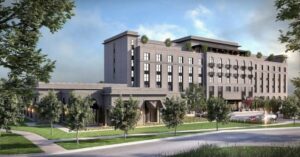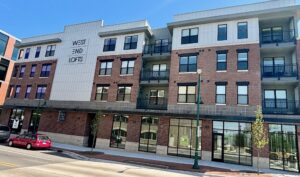BENTONVILLE, Ark. — When Gil Curren’s family moved into a run-down farmhouse in Walmart’s hometown of Bentonville, Arkansas, in 1971, the now-retail giant wasn’t yet a decade old. Sometimes, the nearby creek would flood, and cows would break loose onto the dirt road in front of his home.
Now, when the 88-year-old retiree looks outside of his window, he sees new homes instead of cattle. Cyclists, including mountain bikers, whiz by. And when he drives into town, he sees buildings he doesn’t recognize.
“In the last 10, 15 years, it’s just exploded,” he said. “Every time I go to town now, there’s new construction.”

As Walmart tries to hold off Amazon and keep its title of the nation’s largest retailer, the discounter is racing to turn itself into a tech-powered company. Walmart is growing not only by offering groceries and household staples, but also by selling ads and expanding its third-party marketplace.
As the company evolves, its hometown is also changing — and Bentonville now boasts many of the amenities that visitors might expect to see in startup hubs like Austin, Texas, or major cities like New York.
Craft cocktails, hipster coffee shops and chef-driven restaurants have popped up around the city. And a $255-per-month members-only social club has become so popular it has a waiting list.
Walmart has fueled the growth of its hometown, as it attracts talent to the region and tries to turn the area into a more desirable location for workers who could get competing job offers in major U.S. cities or Silicon Valley. At the same time, Bentonville’s evolution has pushed up the cost of housing and more, contributing to the same concerns about affordability and displacement of residents that have plagued other fast-growing cities.




